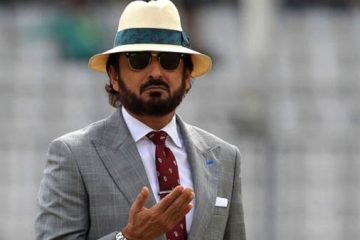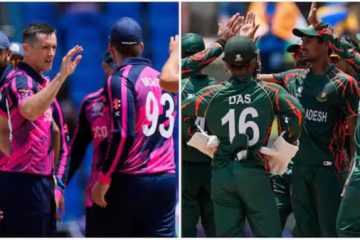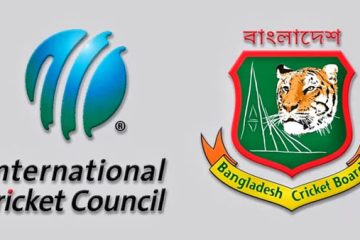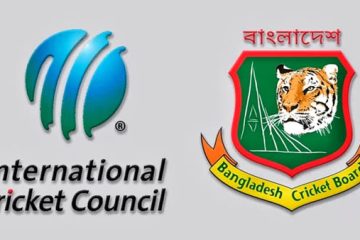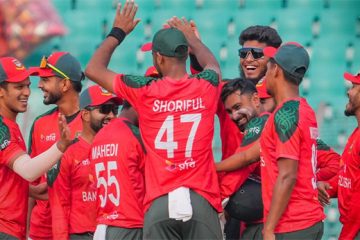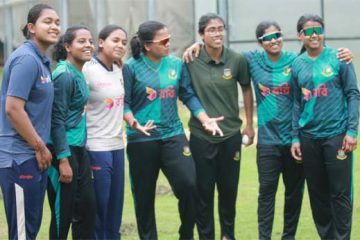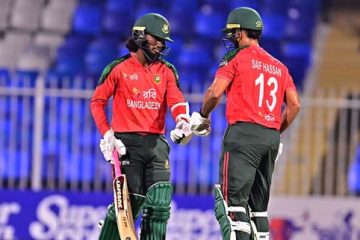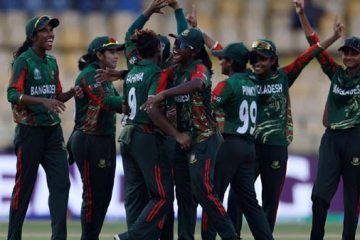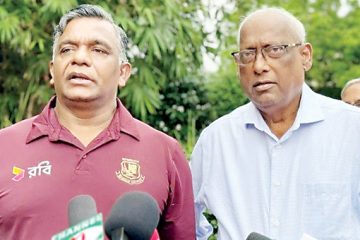Cricket fans in Bangladesh can heave a sigh of relief as the International Cricket Council has dropped the idea of introducing a two-tier system to Test cricket in the immediate future in the face of strong opposition from the Bangladesh Cricket Board. In a media release late on Tuesday, the ICC said mutually-agreed bilateral FTP Agreements, which will be legally binding and bankable, will run for the same period as the ICC commercial rights cycle of 2015-2023.
The ICC also confirmed that there will be no change to the membership status of any country and that all of its members will get an opportunity to play all formats of cricket on merit with no immunity to any country.
The ICC announcement came after the first day’s proceedings of its crucial executive meeting, which debated over a proposal put forth by the ‘Big Three’ boards – the Board of Control for Cricket in India, Cricket Australia and the England & Wales Cricket Board.
The draft proposal recommended a two-tier structure in Test cricket that was to relegate the Tigers to the ICC Intercontinental Cup.
The BCB said it was the first country to take a formal position against the draft proposal at the Dubai meeting.
‘We have communicated to the ICC Board that the BCB will not endorse any proposal that compromises Bangladesh’s full member rights in terms of status and participation,’ acting BCB chief executive officer Nizamuddin Chowdhury told New Age over the phone from Dubai.
‘Bangladesh was the only full member nation to take a stand on this issue,’ he said. A BCB statement issued later confirmed its position.
The BCB statement came amid reports of mounting Indian pressure on Bangladesh to support its proposal in the ICC forum. Leading Indian newspaper Anandabazar reported that India even threatened to pull out from the Asia Cup and the ICC World Twenty20 if Bangladesh failed to comply.
BCCI president Narayanaswami Srinivasan spoke to his Bangladesh counterpart Nazmul Hasan via Skype but could not influence him on the issue.
Instead of providing India with unconditional support, Nazmul wanted more negotiation.
Bangladesh’s support was crucial as India and its new-found allies Australia and England could convince only three other boards – West Indies, New Zealand and Zimbabwe – to support their proposal.
In the first real signs of dissent by boards against the proposal, South Africa, Pakistan and Sri Lanka requested a deferral based on a need for more time to discuss the changes.
Bangladesh joined the mix, asking for further discussion before concluding with the first formal opposition.
‘We said that we cannot compromise our Test status at any cost,’ said Nizamuddin. ‘We were ready for all kinds of sacrifice in order to protect it.’
The ICC, however, agreed to some other proposals included in the so-called position paper that would give India, Australia and England more control of financial matters.
The ICC agreed to the establishment of an Executive Committee (ExCo) and Financial & Commercial Affairs Committee (F&CA) to provide leadership at an operational level with five members, including BCCI, CA and ECB representatives.
‘Anybody from within the Board can be elected to Chair the Board and anybody from within ExCo and F&CA can be elected to Chair those Committees,’ said the ICC media release.
‘With the ICC undergoing a transitional period that includes a new governance structure and media rights cycle, this leadership will be provided for two years from June 2014,’ it said.
‘An Indian representative will chair the ICC board, an Australian representative to chair the ExCo and an England representative to chair the F&CA,’ said the ICC, bowing to pressure from the Big Three.
-With New Age input

